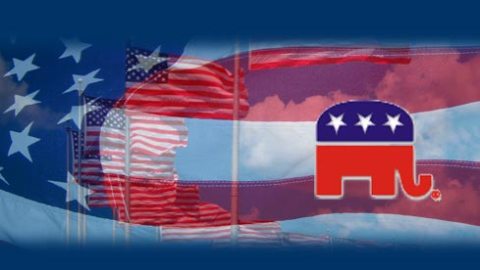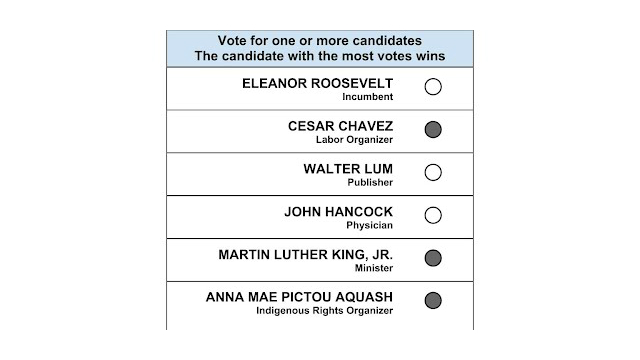Glad Governor Walker Remains Governor Walker

So I’m glad Governor Scott Walker of Wisconsin gets to keep his job.
The RECALL, for one thing, is a very ill-considered progressive reform (originating, of course, in La Follette’s Wisconsin). The idea that a chief executive needs a fixed term to do his job effectively—even at the expense of short-term unpopularity—is one of the least controversial features of the fine analysis of executive power found in THE FEDERALIST PAPERS.
The main complaint against Walker is that he has done and is doing what he said he would do when he successfully campaigned to be chief executive of his state. Elections have consequences, as our president is known to have said.
It’s certainly a good feature of our national Constitution that the TEA PARTY and such couldn’t attempt to recall President Obama because he forced an unconstitutional and despotically transformational health-care bill through Congress. This upcoming election near the end of his fixed turn can or should be a referendum on that change less than half of the country believes in at this point. Obama surely would have lost a RECALL election in November, 2010.
The Democrats’ strategy in Wisconsin was to exaggerate, it turns out, beyond belief the extent to which Walker’s policies have been transformational. He’s mainly under attack for reining in the public-employee unions to modestly reduce very generous benefits packages to a more sustainable level.
The Democrats tried to make this an attack on unions or collective bargaining as such. But public-employee unions are the least defensible unions. For one thing (among many), private-sector collective bargaining is structured by the fact that it’s in the interest of both parties that the industry or whatever be sustainably productive and profitable. Public sector bargaining ends up with the results of the deal being sent to the taxpayers for payment. That’s why public sector benefits—especially pensions—are often more generous than is reasonable. We could live with that in a time when prosperity produced a surplus. But not now.
As we saw in the two cities in California, voters in a time of fiscal crisis will be all too ready to cut those benefits.
One reason President Obama didn’t step up to the plate in Wisconsin is that he didn’t want his fate determined by the popularity of public-employee unions.
It’s true that many Republicans are trumpeting the Wisconsin result as a blow against unions as such. That’s certainly true of my Republican Congressman here in the right-to-work, right-to-fire state of Georgia.
But outside of the South, voters, I think, find it easy to distinguish between public-employee unions and industrial and craft unions. Industrial unions (and the unionization of other manual laborers) are responsible for bringing millions of Americans securely into the middle class.
It might really be the case that the rigors of the global marketplace, tough demographic realities, and so forth have made unionization itself unsustainable. That’s what Marx himself predicted, in agreement with what libertarian economists now think. Certainly union membership is dropping rather quickly. But I’m far from regarding this trend as unambiguously positive.
I’ve written for you before about the increasing vulnerability, contingency, and general disorientation being experienced on many fronts by ordinary members of the middle class. The decline and fall of unions is one factor among many for this trend.
So I hope the Republicans don’t use the Wisconsin result as a reason to overreach. The withering away of collective bargaining, the movement from defined benefits to defined contributions, and so forth ought to be regarded more as necessities we’re stuck with than some new birth of American freedom. These changes, which we can at best half-believe in, need to be handled with prudence and even charity.
Republicans portrayed the Democrats in Wisconsin as reactionary, as playing defense in support of discredited policies. Certainly progressive magazines such as The Nation and The Progressive (which I can’t help but like some) seem more angrily nostalgic than anything else right now. We conservatives usually are about listening to those who speak nostalgically or traditionally—even in defense of the tradition of the union label—for some sense of the human costs of social and economic changes that might even be more good than not.
Two more points: Some Democrats are taking solace in the fact that the exit poll showed that Obama would still carry Wisconsin today by seven points. But that same poll also showed the recall race as a tie, and Walker ended up winning by seven. I’m no statistical wiz, but I would guess that means the presidential race in Wisconsin is dead even. I’ve said time and again that there’s no reason to believe it won’t be very close nationwide in November.
And Democrats are whining too much about the place money played in the Wisconsin race. They didn’t complain when Obama outspent McCain by a pretty comparable amount. I doubt money was the cause of the outcome. The union guys had plenty of money to spend on getting out their vote, and they (unlike McCain) really did. It just wasn’t enough.





